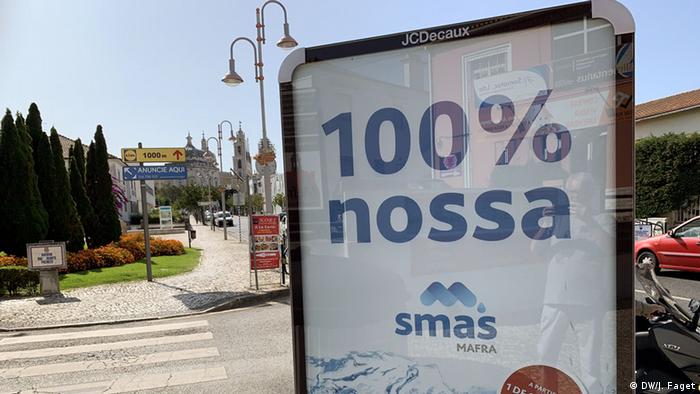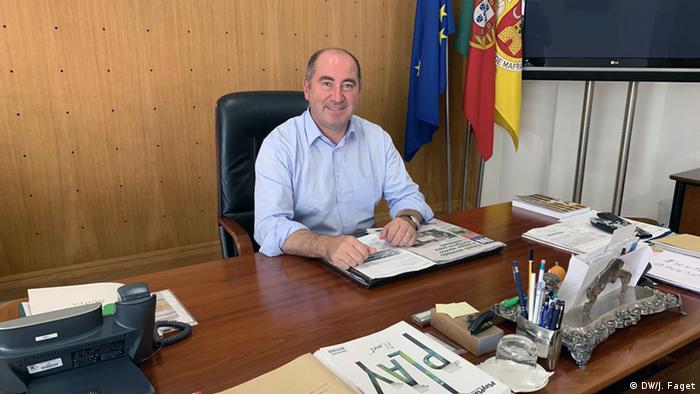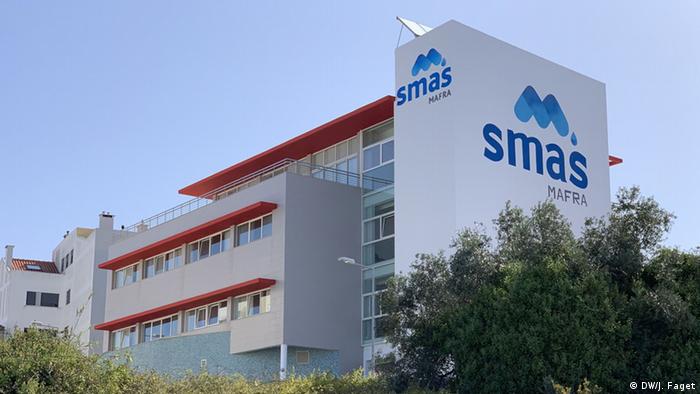During the crisis, many local authorities have privatised in Portugal, the supply of water. Now the costs are rising and most want to entprivatisieren the tap water again. The district was successful in doing so.

“Our water rates were among the highest in the country,” explains district administrator Hélder Sousa Silva. “This could not go on. We had to do something!” His drastic solution to the problem: He has – after almost 25 years, the water supply of 80,000 people-circle in front of the gates of Lisbon ‘entprivatisiert’. Since September, 2019, the water comes out of the lines back from the district administration and is about to become a third cheaper. “We have made the experience that certain services to the state are just better, as in the case of the Private,” says Sousa Silva is a member of on top of that, the right-liberal PSD.
In this case, this party had, of all things, during the years of the crisis, in which Portugal’s economic policy largely by the Troika of the EU Commission, the European Central Bank and the International monetary Fund has been determined, particularly for the privatization of Water made strong. To 2014 were privatized – in spite of great opposition from the Public – 27 counties of their water supply. Many would probably have followed, had not advanced to the 2015 elected government of the Socialist party to further privatisation, it has a bar. Until then, corporations were hoping especially foreign large-scale to the thickness of the water-money in Portugal.

“We have made a good business,” says district administrator Hélder Sousa Silva on the ‘to deprivatize them’ the water supply in Mafra
Privatization during the crisis
Mafra was the first County that will be known to the also of the EU, massively advertised business model: Because the municipality had no money to modernize the dilapidated and inadequate water supply system and to expand, brought the former district administrator of a French private company, which received a long-term concession contract. The company have brought, as the district administration Sousa Silva, not only the necessary capital, but also important Know-how. The circle grew, the water supply also. Everything was gone – at least in the beginning – good.
“Most of the municipalities that privatized the water supply, did that during the time of crisis, because they had no money for the necessary investments,” confirms Francisco Ferreira of the environmental organization Zero. In the case of Mafra, now is a good opportunity to reconsider this and change it if necessary. The water supply was an essential civil right that should, in principle, by the state and by the municipalities to ensure, but to prices, which should stimulate the responsible use of water: “In the case of more transparent pricing, which can be taken selectively from private companies, but not as a rule but as an exception.”
Controversial Privatization Contracts
Only the Private, as they revolve with the country, the privatization of concluded contracts, is rather unrealistic growth rates assumed in the water consumption. Five years ago, the Portuguese court of auditors warned that these contracts secured, particularly the private enterprises, the municipalities would have to bear all the risks alone. The result showed in Mafra: “Because of the water consumption in the recent years, far below the agreed amount, would have forced us, the contractual partner also to compensation payments in the millions,” notes County Commissioner Sousa Silva. Because it was cheaper to terminate the contract and to take over the water supply itself.

In the case of the now municipal water works of Mafra, about 100 people are working on
21 million euros cost concession resolution, which is almost six years prior to the end of the district of Mafra. And in a lot of Trouble, because the water supply company had changed since the contract launch also several times the owner. It now belongs to a Chinese group and, thus, the district administrator, was only interested in maximum profits. “We have made a good deal, when you consider that a much higher penalty payments would have become due to the lower water consumption up to the end of the contract due,” says district administrator, Sousa Silva, despite the high bill.
Example for other
If you would like to make some local politicians to stop. Because most of the other rural districts with privatized water supply is also dissatisfied. Have you tried either, and again as a Partner in the supply business, or to entprivatisieren you ” up to now with rather limited success. After Mafra has managed the dissolution of the contract on favorable terms, are likely to follow suit of other counties in the country. Since in Mafra, again ‘public’ water from the taps flows, seems to be the project of water privatisation to be in Portugal to have definitively failed.